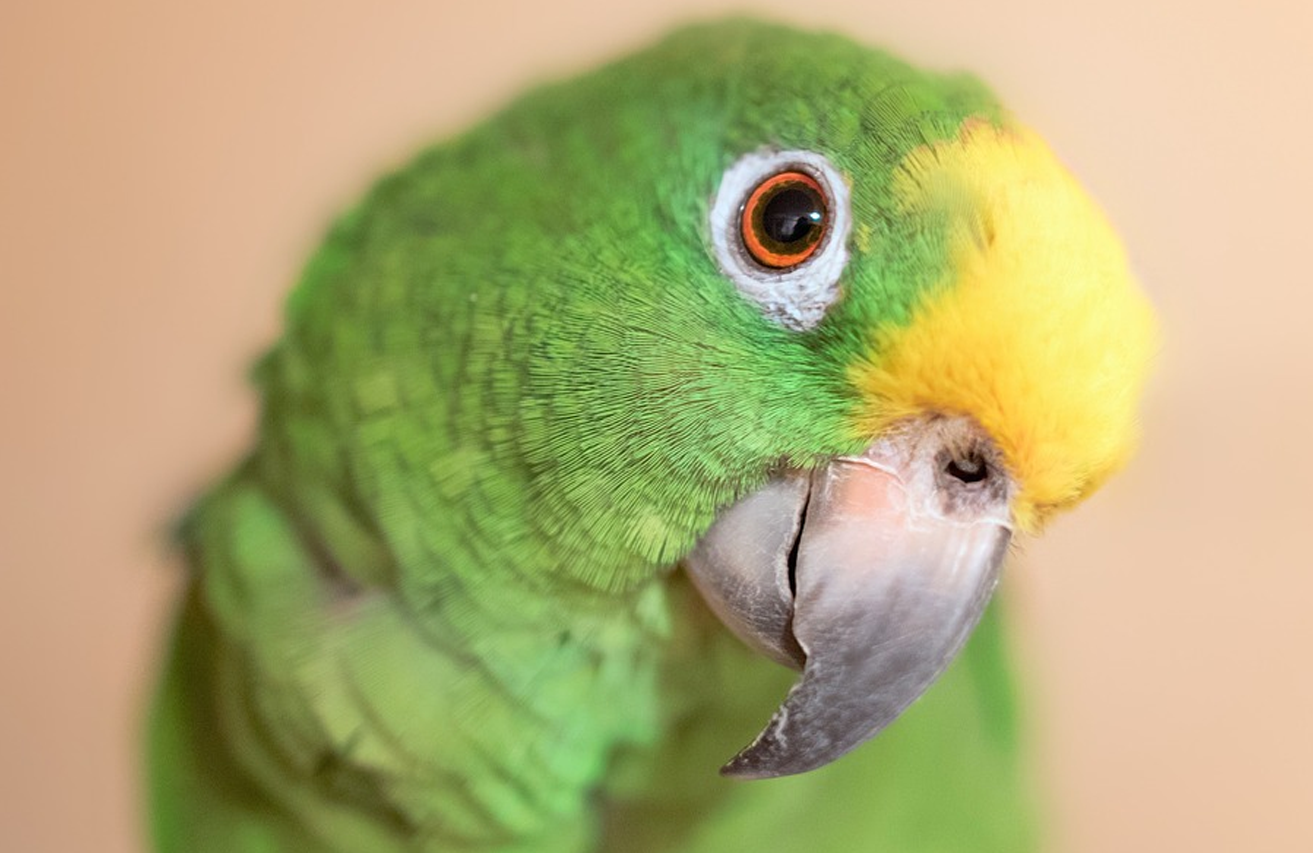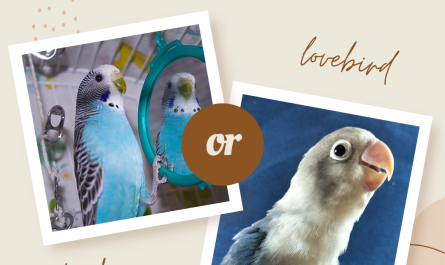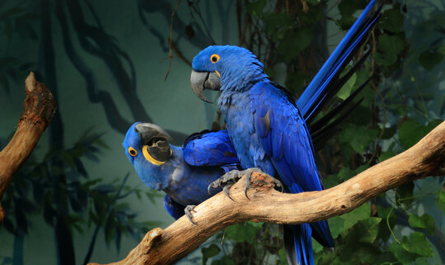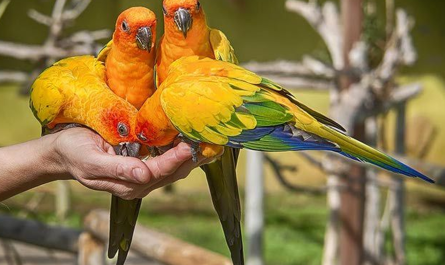Introduction
Parrots are renowned for their colorful plumage, playful personalities, and remarkable intelligence. From the small budgerigar to the large African Grey, parrots vary widely in size, behavior, and lifespan. For potential and current parrot owners, understanding how long these birds live and what contributes to their longevity is essential for making informed decisions about their care and companionship.
Factors Influencing Parrot Lifespan
Species Differences
One of the most significant factors affecting a parrot’s lifespan is its species. Different species have varying life expectancies:
- Budgerigars (Budgies): Typically live 5-10 years, though some can reach up to 15 years with excellent care.
- Cockatiels: Generally live 10-15 years, with some reaching up to 20 years.
- African Grey Parrots: Known for their intelligence, they can live 40-60 years, sometimes even longer.
- Macaws: Large parrots like the Blue-and-Gold Macaw can live 50-60 years or more.
- Cockatoos: Depending on the species, cockatoos can live between 40-70 years.
Environmental Factors
The environment in which a parrot lives plays a crucial role in its health and longevity:
- Space: Adequate space to move and exercise is vital. Small cages can lead to stress and health issues.
- Temperature and Humidity: Maintaining appropriate temperature and humidity levels prevents respiratory problems and other health issues.
- Cleanliness: A clean living environment reduces the risk of infections and diseases.
Diet and Nutrition
A balanced and varied diet is essential for a parrot’s health. Poor nutrition can lead to obesity, malnutrition, and other health problems. Key dietary components include:
- Pellets: High-quality pellet diets should form the basis of a parrot’s diet.
- Fresh Fruits and Vegetables: Provide essential vitamins and minerals.
- Seeds and Nuts: Should be given in moderation due to their high-fat content.
- Avoid Toxic Foods: Certain foods like chocolate, caffeine, and avocado are toxic to parrots.
Healthcare and Veterinary Care
Regular veterinary check-ups are crucial for early detection and treatment of health issues. Parrots require specialized avian veterinarians who understand their unique physiology and needs.
Mental Stimulation and Social Interaction
Parrots are highly intelligent and social animals. Lack of mental stimulation and social interaction can lead to behavioral issues such as feather plucking and excessive screaming. Providing toys, puzzles, and regular interaction helps keep parrots mentally and emotionally healthy.
Average Lifespan of Common Parrot Species
| Parrot Species | Average Lifespan | Maximum Lifespan |
|---|---|---|
| Budgerigar (Budgie) | 5-10 years | 15 years |
| Cockatiel | 10-15 years | 20 years |
| Lovebird | 10-20 years | 25 years |
| African Grey Parrot | 40-60 years | 60+ years |
| Blue-and-Gold Macaw | 50-60 years | 70+ years |
| Cockatoo (various species) | 40-70 years | 70+ years |
| Eclectus Parrot | 30-40 years | 50 years |
| Amazon Parrot | 40-50 years | 60+ years |
How to Extend Your Parrot’s Lifespan
Proper Diet
Ensuring your parrot has a balanced diet is fundamental to its longevity. Incorporate a variety of foods to meet all nutritional needs:
- Pellets: Choose high-quality pellets formulated for your specific parrot species.
- Fresh Produce: Offer a variety of fruits and vegetables daily.
- Healthy Treats: Provide seeds and nuts in moderation, avoiding those high in unhealthy fats.
- Hydration: Always provide fresh, clean water.
Regular Veterinary Check-ups
Routine health check-ups can identify potential health issues early. Annual or bi-annual visits to an avian veterinarian are recommended.
Safe and Enriched Environment
Creating a safe and stimulating environment helps prevent accidents and promotes mental health:
- Cage Size: Ensure the cage is spacious enough for your parrot to move freely.
- Toys and Perches: Provide a variety of toys and perches to prevent boredom and encourage physical activity.
- Safe Housing: Keep the cage in a safe area away from hazards like toxic fumes, open windows, and other pets.
Mental and Physical Stimulation
Engage your parrot with activities that challenge their intellect and keep them active:
- Interactive Toys: Puzzle toys and foraging activities stimulate mental engagement.
- Training Sessions: Teaching tricks or commands provides mental stimulation and strengthens the bond between you and your parrot.
- Social Interaction: Spend quality time interacting with your parrot daily.
Preventing Common Health Issues
Proactive measures can help prevent many common health problems:
- Proper Hygiene: Regularly clean the cage and provide a clean environment.
- Dietary Balance: Avoid overfeeding and ensure a balanced diet to prevent obesity and malnutrition.
- Monitor Health: Keep an eye out for signs of illness such as changes in appetite, feather condition, or behavior, and seek veterinary care promptly if needed.
Common Health Issues in Parrots
Despite proper care, parrots can still encounter health problems. Being aware of common issues can help in early detection and treatment:
Respiratory Infections
Parrots are susceptible to respiratory infections, especially in environments with poor air quality or high dust levels. Symptoms include sneezing, wheezing, and labored breathing.
Psittacosis
Also known as parrot fever, psittacosis is a bacterial infection that can be transmitted to humans. Symptoms in birds include lethargy, loss of appetite, and respiratory distress.
Feather Plucking
Often a sign of stress, boredom, or underlying health issues, feather plucking can lead to significant damage and secondary infections.
Obesity
Overfeeding and lack of exercise can result in obesity, leading to various health complications such as liver disease and heart problems.
Vitamin Deficiencies
A poor diet can lead to deficiencies in essential vitamins like Vitamin A, which is crucial for eye health and immune function.
Beak and Nail Problems
Improper nutrition or lack of proper perches can cause overgrown or misshapen beaks and nails, affecting the bird’s ability to eat and move comfortably.
Conclusion
Understanding the lifespan of parrots and the factors that influence their longevity is essential for providing the best possible care. By selecting the right species, maintaining a healthy diet, ensuring a safe and stimulating environment, and seeking regular veterinary care, you can help your parrot live a long, happy, and healthy life. Parrots are long-term companions, and with the right knowledge and dedication, you can enjoy many years of their vibrant presence and joyful interactions.
References:
- Avian Lifespans: PetMD – Parrot Lifespan
By staying informed and proactive in your parrot’s care, you can ensure a fulfilling and enduring relationship with your avian friend.
Share this content:




